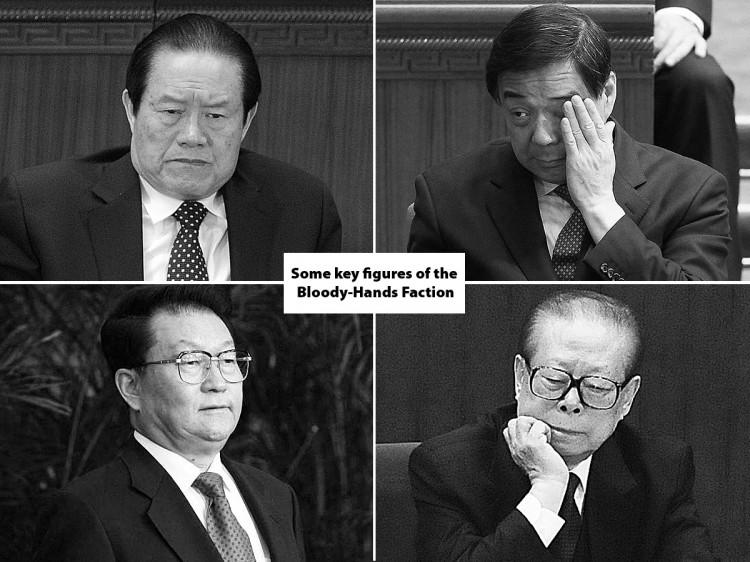
Some key figures of the Bloody-Hands Faction, the officials that former CCP head Jiang Zemin promoted to implement his persecution of Falun Gong. Top left: Zhou Yongkang, head of the Chinese regime's public security, recently stripped of his authority and put under investigation (Liu Jin/AFP/Getty Images). Top right: Bo Xilai, former Chongqing Party secretary, soon to be tried for corruption (Lintao Zhang/Getty Images). Bottom left: Li Changchun, CCP propaganda chief (Feng Li/Getty Images). Bottom right: Jiang Zemin, former Chinese leader, originator of the bloody-hands faction (Minoru Iwasaki-Pool/Getty Images).
The changes in China have only begun. Since the former Chongqing police chief Wang Lijun fled for his life to the U.S. Consulate in Chengdu on Feb. 6, a hidden logic has led from one stunning, new development to another.





